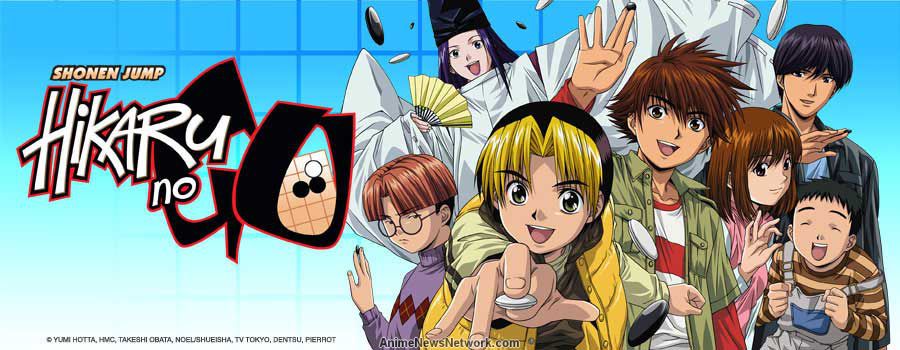
If you’ve ever read more than a few manga, or watched a half-dozen anime, then this storyline will sound familiar- a reluctant youth becomes part of a sport, hobby, or other activity, learning the joys of participating in it, making new friends and allies, overcoming enemies and challenges, and progressing from talented newbie to master of that activity. The activity in question can be anything from sports (Slam Dunk, Prince of Tennis), to boardgames (Hikaru no Go, Yu-Gi-Oh!, Akagi), to drawing comics (Bakuman), to wine tasting (Drops of God), to fishing (Grander Musashi), to business (Salaryman Kintaro), to sex (Futari Echi), to… Well, you get the idea.
I don’t know which was the first manga to use this storyline (maybe Aim for the Ace!), or how it evolved, but regardless, it’s a staple story structure of everything from manga for young children (Pokemon) to manga for adults (Sanctuary), and can literally be used for almost anything. It provides a strong story structure upon which to build a compelling serialized story which can explore almost any kind of activity and help the audience explore new hobbies and activities vicariously.
And that’s the key with these dramas, really. An Activity Drama (as I call them), at it’s heart, is actually a teaching story where the audience is learning about something and having fun doing it at the same time. You might think of them as dramatized textbooks, or tutorials, or just promotional materials for an Activity, but however you look at them, the two key elements of this kind of drama are as follows:
- The audience must be entertained.
- The audience must learn something about an Activity and/or Subculture.
On the surface, if the drama meets these two requirements, then it’s an activity drama.
Of course, some of you are probably thinking that there are English books that meet those requirements too- Dan Brown’s novels for example or Michael Crichton’s. Heck, even Harry Potter seems to meet most of the criteria above, including the whole formula I outlined above. So, would that mean that Harry Potter is an Activity Drama?
Yes and No.
It’s an Activity Drama, but not the way the Japanese use it. You see, there are some very Asian elements lurking under the surface of a Japanese-Style Activity Drama that make them different from their English language counterparts. And, this is something I want to explore with this article- what is the underlying philosophy that lets the Japanese turn a story about something as boring as golf (Robot x Laserbeam) into a compelling drama that you just can’t stop reading until you find out what happens next?
However, before we dive into that, there’s few things I want to discuss.
First, one concept that we need to be clear on is the Asian cultural view that all people are part of a greater system, not individuals. Confucian influenced cultures see every member of society as contributing to a greater whole, and tend to see human behavior in terms of being beneficial or detrimental to society. This can produce interesting conflicts with more European views, as some behaviors that Europeans and Americans would look down on as wastes of time or money are viewed as worthwhile because they are still contributing to greater society in their own way. Scholars, for example, hold much higher places of esteem in Asian culture than they do in Western culture exactly because of their great contributions to society’s knowledge base.
Add to that, that in Asian cultures (and especially Japan) mastery of a skill or activity is considered a worthwhile goal in and of itself. While a Western point of view would question whether a skill or activity is worth knowing based on its ability to make money or bring value to society, in Asian culture mastery of something is consider its own reward. A lot of this comes from a line of Zen/Taoist philosophy which lurks underneath the surface in Japanese culture. This line of thinking states that one way to achieve Enlightenment (a state of pure spiritual advancement) is through absolute dedication to a task/role to the best of your ability. This translates to the idea that all human activity has value for the people who do it, and even if it only benefits the people who do it, that still means it has worth.
So, in other words, if brewing the best soy sauce, becoming the best Uno player in the world, or travelling to every country on Earth gives people’s lives meaning and makes them happy- that’s a good thing. As long as the people doing it are getting benefit from it, and not doing harm to themselves or others, their mastery of that thing will only benefit themselves and society as a whole by adding to the pool of human knowledge.

With that in mind, the other major concept you should understand is that if you delve into the nature of what stories are, you’ll find that one of the major roles that stories serve in human culture is to teach. We are born, live, and die only really knowing our own perspectives on life and how the world works, and the way we learn about other ways of seeing the world is through the stories of others. In a way, you can think of stories as crowdsourced learning- where we put our own ideas and perspectives of the world out there and share them with others so that we can learn from each other.
On top of that, there is also a perspective of writing advocated by writing teachers like John Truby which believes that all stories are actually arguments supporting worldviews and moral values. In other words, we don’t just put our ideas out there when we write stories, we’re also telling the audience what we think is important and not important in the world. We’re sharing not just ideas, but also values, and what we think is the best way to live.
So, when we write a story, we don’t just write about interesting characters doing interesting things, we’re both giving the audience something they want, and we’re also making a claim that certain things are important and certain things aren’t important. (For example, when you write a story about a girl raising a dog, you’re not just telling about a character’s experiences raising a dog, but also teaching the audience about raising dogs, and arguing that raising a dog is a worthwhile activity (assuming it has a positive ending/message).)
This is what your high school English teacher was talking about when they went on and on about “theme” or “the point of the story”, or what Truby means when he discusses “Moral Arguments” in his book The Anatomy of Story. In other words- the thing(s) that the storyteller is trying to get the reader to believe when the story is over and done.
So then, what are Japanese Activity Dramas trying to get the audience to believe? What is the Moral Argument which hides underneath all activity dramas no matter what the topic or theme?
Through hard work and effort towards <your goal of choice>, you can achieve self-actualization and find esteem (in yourself and from others).
That’s it. If you work hard, and be the best you can be at your passion, you will find personal happiness, social respect, and become the best you that you can be.
And some of the ways this argument is supported in Activity Dramas are:
- Those who stand in opposition to our Main Character (MC) are always people who have a flawed approach to the Activity, take the goal half-assed, or are trying to do it through shortcuts (like wealth, cheating, crutches, tricks, etc)
- There are always people who are trying to master the goal, but failing in some way because they’re missing something. (Not “pure” or flawed in their thinking or approach to it.)
- There are always people who consider the goal the path to “godhood”, which in this case means self-actualization (being all you can be).
- In the stories, the ones who win are always the ones who work the hardest at it and don’t quit.
- They find a supportive community through pursuit of their goal of choice. (reward, public esteem)
- Opponents almost always come to see the MC’s way as the “true” way, and those who come to understand this become allies or at least “reform”.
- The love interest (if there is one, as sometimes there isn’t in this genre) comes to respect and support the main character because of their hard work, acting both as inspiration and reward. (They won’t get with the hero until the MC has accomplished their goal.) And, occasionally also being inspired by the main character to pursue their own goal, often one related to the main goal of the story. (Taking up the MC’s sport or game of choice, for example. Or becoming a better artist or businessperson.)
Of course, this isn’t enough. There are also supporting arguments in any Activity Drama which will help to keep the story on track. Here are a few of them:
- Activity X is awesome! (ie Golf is Awesome, Baking is Awesome, Skydiving is Awesome, etc)
- Reaching your goal is easier (and more fun), with a community.
- Quitters never win.
- There is value in hard work for the sake of hard work.
- No matter what your Activity of choice is, there is a community which will embrace you if you give it your all.
- People respect those who work hard.
- We are all part of a system and a community, whether we like it or not.
- Every Activity has hidden depths if you only look deep enough.
- If you don’t take an Activity seriously, you will never really be good at it.
- Hard work trumps talent.
- Talent is needed, but it is only a foundation upon which hard work can build.
- Focusing on just one aspect of the Activity is not enough, you must be well rounded and (Usually demonstrated by the MC facing an opponent who is massive in one aspect of the Activity, but not in the other aspects, making them challenging but ultimately still losers.)
(Sometimes people mistake the above arguments for the main Moral Argument of the story, but if you think about it, you’ll see that they only serve to help the real argument of trying to achieve your potential through mastery of an activity.)
And like any process, there is a clear pattern to how these stories progress, and Activity Dramas tend to go through the following stages:
- Getting Motivated– the Main Character (MC) is given a reason to explore/pursue the activity. Sometimes the MC starts motivated, in which case they explain the reason they’re already motivated to another character instead. In any case, the audience is presented with the MC’s reasons for pursuing the activity. The MC is usually living an unfulfilled life and comes to believe that the activity might be a possible solution to fill that void.
- It’s Easy! – the MC engages in the activity and shows a natural talent or ability for it, allowing them to score their first victory. This gives them the confidence to move forward, and the feeling that this activity will bring them pleasure and give them something they’ve been missing from their lives.
- Maybe it’s Not So Easy? – The MC encounters their first real hurdle to becoming part of this activity- usually through an encounter with the Main Opponent. Their early victory was a product of talent, but they quickly learn that talent alone isn’t enough, as those who have skill can trump their talent easily. Now they’re forced to actually start to learn and explore the activity on a basic level.
- A Whole New World – The MC is introduced to the subculture which exists surrounding the activity. Through a guide character (or characters) they discover that there is a whole world they were unaware of hiding within the community that engages in the activity. From this discovery, they begin their first steps into joining that community, and are given basic knowledge about that activity.
- A New Path – Now combining Talent and Skill, the MC starts on their real journey towards becoming a master of the activity. They have their first true victory, and get their taste of what it’s like to be part of this new community while facing an Opponent (usually the one from Step 3) who has a flawed approach to the activity in some basic way. This opponent will seem strong at first, but they will realize due to their new skills that this opponent is really weak because they haven’t mastered the fundamentals. Using those same fundamentals combined with talent, the MC will defeat them utterly.
- The Long Road – Now that they’ve entered this new world built around the activity, the MC will begin their path towards mastery. During this stage, they will meet a successive series of Opponents and challenges, make new friends, and learn more and more about their activity of choice. This stage is extremely flexible, and can take as long as the story needs it to take, or as long as the steps needed to master the activity require. Generally, each “step” along The Long Road will follow the same pattern:
- The MC encounters a new opponent who is strong in an area where the MC is still weak or has knowledge the MC lacks. (This can also be a challenge or task which can’t be defeated with the MC’s current skill set.)
- The MC is defeated by this new opponent/challenge. (whose ability over the MC is often coded by being referred to by a special name)
- The MC figures out why they were defeated (often by consulting others).
- The MC seeks and finds a solution to the problem. (Learning new skills/ideas along the way, and possibly a counter-technique.)
- The MC faces the opponent/challenge again, and wins this time because of their new skills/knowledge.
- The MC is rewarded for their efforts by praise of others. (If this praise comes from the Opponent, they often become friends or allies after this.)
- Return to Step a)
- Rising Competition – While the MC is rising, they will periodically re-encounter the Main Opponent in different ways, usually ones which result in indirect competition between them. (Teasing their final conflict and building tension.) This indirect competition is usually through other people who do the activity (defeating the people each other have faced or each other’s allies) and sometimes by competing in different aspects of the activity besides the main one. Also, as a result of this ongoing rivalry, the Main Opponent will also begin to become stronger as well, overcoming personal hurdles and staying ahead of the MC even when it seems like the MC is starting to catch up.
- Social Advancement – as the MC defeats more and more challenges, they also rise up within the sub-culture surrounding the activity. They will often find themselves drawn into the politics and deeper aspects of the community and must learn to find their place inside the community. Usually they will learn that the community is bigger than they first imagined, and has far greater depths. They will also make enemies in the community who are threatened by their advancement and/or the changes they represent to the community as it exists now. Those enemies will usually become supporters of the Main Opponent, and help to drive the growing conflict between the MC and MO. Some of them may also try to trap or distract the main character through offers of positions of status or profit if they discontinue their journey, but even if tempted, the MC will always refuse in the end.
- Eye of the Tiger – The MC has now mastered/learned all they need to know and become a major figure in their activity. They must now face the Main Opponent in a true match to prove their level of ability and take their place as a master of the activity. Often the MC will have a crisis of confidence or suffer from Imposter Syndrome at this point, thinking they aren’t really ready yet, but they’ll overcome it and defeat the Main Opponent. Usually the Main Opponent is flawed in some way, often in their thinking or outlook about the activity, and the MC’s victory is due to their purity of outlook, thus showing the audience that their way is the true path to victory in the end.
- Towards the Future – The MC is now a master of the activity they fell in love with, and is shown to have a whole new life because of it. They are a happy and fully realized person and member of society who confidently knows their place in the world and is happy within it. The activity and subculture around it have benefitted and changed because of the MC’s entry into it, and they can look back with nostalgia and look forward with anticipation to watching the activity grow and flourish under them. Often this is represented by them helping to bring new people into the activity and starting the cycle anew.
With all of this in mind, one of the first things that may come to mind of more manga savvy readers is what the difference is between an Activity Drama and a Shonen Fight drama. They’re both following versions of the above structure and about heroes starting from nothing and working hard at an activity to become a master of it. For example, I mentioned Naruto as an activity drama, but is Dragonball Z also one? And, for that matter, are Chinese XianXia stories, which are also about a newbie hero rising up through the ranks and achieving fame and enlightenment?
To answer the question- no, I wouldn’t classify those as activity dramas.
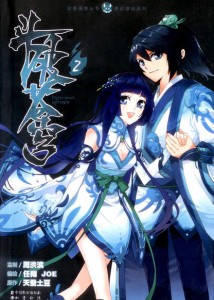
While they share many of the same features as Activity Dramas (character tropes, similar story structure, progression), there is a key difference between them- they’re not teaching the audience anything. Yes, the audience is learning about the setting and the systems the character’s Activity is built around, but at heart those stories aren’t really teaching anything. The main character’s leveling is happening terms of numbers (“It’s over 9000!”) or some other ranking system, but we’re not actually learning knowledge and skills alongside the main character as we go.
I guess, one of the key questions to ask in whether what you’re looking at is an Activity Drama or not is whether at the end of the story the audience has gained actual useful knowledge through going on this journey with the characters. This is one of the things that differentiates an Activity story from one like Game of Thrones or Lord of the Rings, where the audience is learning a huge amount of information about a Fantasy setting. In a typical Fantasy or Sci-Fi novel, the information about the setting is there to add flavor and bring the journey of the character to life, but in an Activity Drama story, the information the audience is learning IS the point of the story.
So then, that leads to another question- can you do an Activity Drama about a fictional subject or activity?
Sort-of.
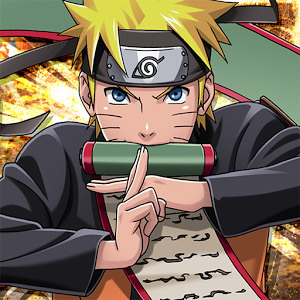
Naruto is a good example. Naruto (and not it’s continuation, Naruto Shippuden) is a story about a young man learning how to become a Ninja in a Japanese Fantasy setting. He starts as a trainee, and then he (and the reader) learn the skills he needs to become a full ninja within his setting. In theory, if we lived in his setting and read this story, we’d be capable of performing many of the tasks he does if we learned those lessons. This is why I classify early Naruto as an Activity Drama, but not Dragonball Z which is just about characters learning to yell louder and change their hair colour. This is also why Naruto Shippuden (and the later parts of Naruto as well) aren’t really Activity Dramas because at that point the ninja abilities are just superpowers and we’re not learning anything useful anymore except about character stories and tactics for using said ninja superpowers. (In other words, it’s become Dragonball Z.)
In this sense, Naruto is a Pseudo-Activity Drama- one which follows all the rules and tropes, but which covers a fictional activity and isn’t really teaching the audience anything useful. It’s a story which is borrowing the tropes of Activity Dramas as a way to keep reader interest and explore a setting, but isn’t actually there to educate the reader.
So then, is it possible to do a real Activity Drama about a fictional activity that is still applicable in the real world? In other words, an Activity Drama which is based around a fictional subject but still teaches the audience actual skills and knowledge?
That answer is definitely yes.
There are three ways I could see this working.
One way would be to incorporate real-world knowledge into a fictional activity. For example, say you had a character learning to be an Alchemist in a Fantasy setting, but the rules of alchemy in that setting are based on real-world chemistry principals. So, while the activity of being a magical alchemist might be fictional, and they do can things real-world chemists can’t, the underlying fundamentals of chemistry are still there being learned by the audience as part of the story. This is no different than learning air combat tactics from dragon riders, or learning a “magical language” which happens to be a real-world language as well. (As the character learns the “magical language of the ancients” to become a Wizard, which just happens to be identical to Egyptian, the reader is also learning Egyptian in the process.)
The second way to make an Activity Drama about an unreal subject would be if the content wasn’t important, but the process or something else related to it was. So, for example, your character might be running a Space Station in the 43nd century and everything they deal with involves issues related to that era (selling Vanuthian Cat-Monkeys and dealing with Space Pirates), but we’re still watching the main character learn the basic principals of organizational management. Similarly, a chef in a Fantasy setting might be cooking Dragonfish Eggs and making Slimeskin Wraps, but the reader could still be learning about the fundamental skills and techniques of cooking and food preparation. (see Dungeon Meishi) Similarly, the basics of magic spell creation might just happen to be the same principals behind computer coding, with the same techniques, skills, and tricks working in both skillsets.

Finally, there is the Pokemon approach. In this approach, the Activity Drama’s subject is fictional, but that fictional subject is also MADE useful in the real world. Pokemon the TV show serves as an Activity Drama teaching the audience how to play a game which exists in the real world alongside the audience in the real world. In other words, the fictional activity accompanies a new real world application which exists in some form alongside the fictional activity. The Activity in the show might still fictional and fantastical (difficult to catch imaginary creatures), but the knowledge connected with it allows the audience to play computer and card games that simulate that for the audience.
The possibilities really are endless. The key is that at the end of the story, the audience members should now be knowledgeable about somewhat useful things they weren’t before. After all, this is a learning story, and if the audience isn’t learning something, then it’s not a real Activity Drama!
Another thing I wanted to discuss is the presence or lack of Love Interests in Activity Dramas. While typical Heroic Journeys tend to have a love interest character who represents the hero settling down and becoming part of society at the end of their journey, Activity Dramas commonly have no such character. However, if you think about it, this makes perfect sense.
Since the Love Interest is there to represent the hero rejoining society after his or her quest, but the main character in an Activity Drama has already been on journey from being an individual to becoming part of a community, the role serves no real purpose in Activity Dramas. A Heroic Journey is based on the old mythic structure of a character leaving society to become an adult and then returning, but the Activity Drama lead never left society to begin with, so why do they need to a symbol of reuniting with society at the end of their journey?
That’s not to say that Love Interests can’t be important in Activity Dramas, they can, but they usually serve other functions. They can still be a reward for the character completing their mastery of the activity, or an incentive for going on that journey. They can also be supporting the character as they grow and develop (“Adrian!!!!”) or provide alternate points of view (perhaps how the other sex sees things) about the activity or the culture related to it. Human relationships are a part of any story where we become part of a community, and love is a natural aspect of that as well, but the point is that you can build a perfectly good Activity Drama without the need for a romantic subplot.
Of course, the Love interest issues are hardly the only genre trope Activity Dramas have. Here is a list of many of the standard tropes you’ll find in almost any Activity Drama story to one degree or another, which shouldn’t be viewed as clichés so much as what’s been proven to work by legions of writers producing these types of stories.
- The Main Character will usually have no interest in the Activity at the beginning of the story, but will be lured in by the possible rewards of participating in it. (Often as represented by the Main Opponent (MO), who is normally famous for their ability in this Activity.)
- The MC will be a bit dense, both as a comic aspect, and because it forces the others teaching the MC the Activity to explain things clearly and slowly in different ways.
- There will almost always be “buddies” who are lesser talents at the sport and are inspired by the MC. Usually they will have more knowledge about the sport at the start than the MC, but they’re all theory and no practice, which is why the MC will quickly surpass them.
- The people around the MC will teach the MC the Activity’s rules/aspects a little bit at a time, so as not to overwhelm the reader with detailed infodumps and keep the drama moving.
- The MC will always have a hidden talent for this Activity, which gives them an edge over other newbies, but needs to be developed and refined through hard work.
- The MC’s outlook on the Activity will always be flawed in some way, and overcoming this flaw will usually be the final hurdle that lets them overcome the Main Opponent. (Often, it will be linked with some personal flaw or need they have, but not always.)
- There will always be a Main Opponent (MO) who acts as the “final boss” for our hero to defeat and who is aiming for the same top spot our MC wants to occupy. He or she may or may not be evil, and may even have a good relationship with the hero, but they’re still the one the MC needs to beat to achieve mastery of their activity of choice.
- The MO will be far ahead of the MC at the start (and renowned for their genius at the activity), but their approach is flawed and their development usually plateaued, which lets the MC catch up. (Although, interacting with the hero in some way will normally let the MO start to move forward again once the MC starts to catch up.) Although they still don’t overcome some central flaw, which is why they lose in the end.
- There will be special techniques or moves which are named and represent advanced ability or styles of doing the activity. This is a holdover from Martial Arts dramas, from which Activity Dramas most likely evolved. These are there to add to the drama and build suspense when used by opponents (who invariably each have at least one of these in their back pockets) or show the MCs advancement in skill and make them look cool.
- The MC will have to face a series of escalating lesser opponents as they try to make their way to the Main Opponent. Each of these will represent a flawed approach to the Activity which makes them seem to be winners/powerful, but will be exposed to be weak. (Physically flawed, morally flawed, theoretically flawed, flawed in technique, flawed in outlook, flawed in decorum, flawed in procedure, etc)
- There will be a community of like-minded people who are also passionate about the Activity, and they will represent other positive aspects and viewpoints of that Activity. (In a Writing Drama, there will be characters representing different outlooks on writing (Plotting, Pantsing, Outlining, etc) and different characters who represent different Genres (Horror, Romance, Westerns, etc) which will be there to show how those tasks can be done differently (but still equally validly) than the main character might be doing them.) This serves to remind the audience that there is no one right path to Enlightenment, while also bringing in different skills and approaches for the audience to consider about the Activity which aren’t ones the MC’s story is exploring.
- The MC must make sacrifices to achieve their goal, usually physical and social ones. (Health, relationships, other opportunities, etc)
- The MC always gives 110% to their Activity, which is what sets them apart from others who do the Activity.
- There will be mentor characters who recognize the MC’s talent and help to guide them on their way, but usually this respect must be earned before they’ll help the MC. Sometimes they’ll even be against the MC when they first encounter them.
- The MC and the MO ultimately always have the same goal, but one has chosen the “wrong” way to reach for it.
- There is some hidden philosophical aspect to the Activity the MC must learn, sometimes several of them.
- Through mastering the activity, the MC becomes “pure” and enlightened about the world.
You can find other common tropes related to this genre here on TV Tropes’ Sports Story Tropes page, since one of the most popular form of the Activity Drama is of course Sports Dramas. However, some of those are specifically Sports related tropes, as opposed to more general tropes that pop up in almost any Activity Drama story.
Thus, you can probably start to see the difference between a story of this genre and one like say, Harry Potter, or Hunger Games. In most Young Adult Activity stories of the Western variety, the focus will be on the character growing, becoming an adult, and overcoming an authority figure as they go through rites of passage. (In other words, clawing their way to the top through talent and individual effort.) Whereas, in the Japanese version of the story, the focus is on the value of the activity itself, and how working hard at that activity makes you a better member of society.
So, while in Harry Potter it was the story of how he grew up, ended the curse and became a hero by killing Voldemort, if Harry Potter was done Japanese style the focus would be about how Harry Potter became part of the wizarding community and through it achieved his ultimate potential as a wizard and leader in that community.
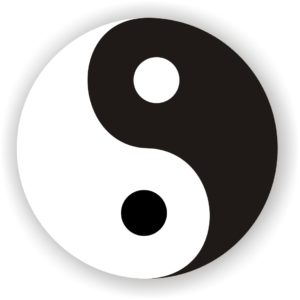
Individualism versus Collectivism. The mastery of an Activity as a means to a goal (kill the bad guy, overcome personal flaws), versus master of an activity for the sake of mastery and personal development (add to society, achieve your personal potential). Being given a place in society versus earning a place in society. Talent versus Hard Work. All of these, and the views of them, are what separate Japanese Activity Stories from Western ones.
It’s this difference, and difference in thinking, that makes Japanese-style Activity Dramas so interesting and compelling. It builds on people’s natural desires to learn while being entertained, and provides a package of novelty, drama, and knowledge which is hard to beat. Whether the story is short or long, novelized or serialized, animated or acted, it’s still a story about a human learning and sharing their experience with others as they grow and become part of society.
Just like we all do.
Rob

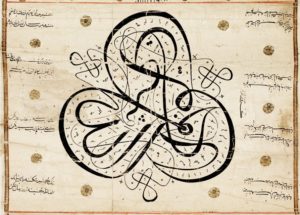
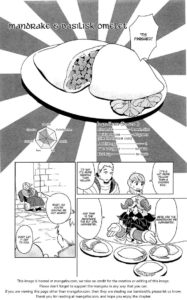

It is absolutely the weirdest book I’ve read when I think about it. It feels like a Pick-Your-Path Adventure where you don’t get to pick your path. LOL
You mean Bakuman?
>The mastery of an Activity as a means to a goal (kill the bad guy, overcome personal flaws), versus master of an activity for the sake of mastery and personal development (add to society, achieve your personal potential). Being given a place in society versus earning a place in society. Talent versus Hard Work. All of these, and the views of them, are what separate Japanese Activity Stories from Western ones.
It ties into something we’ve discussed before; the idea that there are three aspects to any story you can focus on: character, plot and setting. The Western style Activity Drama tends to be character based, (Rocky) whereas the Eastern one is more setting (Bakuman) or plot (Dragonball Z) based. What I mean is:
-a character based story is one where the character is improving to meet a specific, personal goal. Beat the bad guy, win the championship, get the girl.
https://www.youtube.com/watch?v=K1KHMIrUnj0
-a setting based story, like Bakuman; highlights the world in which it takes place, and/or educates on the process. Muto Ashirogi doesn’t change the manga world in Bakuman; they move through it, conforming to IT’S will.
-a plot based story is where the story progresses strictly BECAUSE the characters are improving; like how Dragonball Z is entirely based around a new foe, and the process of powering up so’s to defeat them. And when that’s done, a new, more powerful bad guy shows up…. without a lot of explanation or any sort of setting ecology…. just to perpetuate the story.
Don C.
Excellent points! I hadn’t thought about it in those terms, but you’re right about those three different aspects of story a writer can focus on. I think the Activity Drama tends to be about setting, and the Shonen Fight genre is one built around plot. The characters tend to be stand-ins for ideas and viewpoints as opposed to the real focus of the story, because they’re not the focus and their own heroic journeys ultimately don’t really matter in the big pictures. As you say, it’s about people choosing how they are shaped to society, as opposed to the power of the individual to shape the world.
This is why I think a lot of people who try to copy the Japanese style fail so badly, because they don’t understand the fundamental difference of viewpoint Japanese stories have underneath them, and how the interplay of those ideas reflects on the stories produced and the ways they’re told.
Rob
>This is why I think a lot of people who try to copy the Japanese style fail so badly, because they don’t understand the fundamental difference of viewpoint Japanese stories have underneath them, and how the interplay of those ideas reflects on the stories produced and the ways they’re told.
….you mean it’s NOT just the big eyes and speed lines?
Don C.